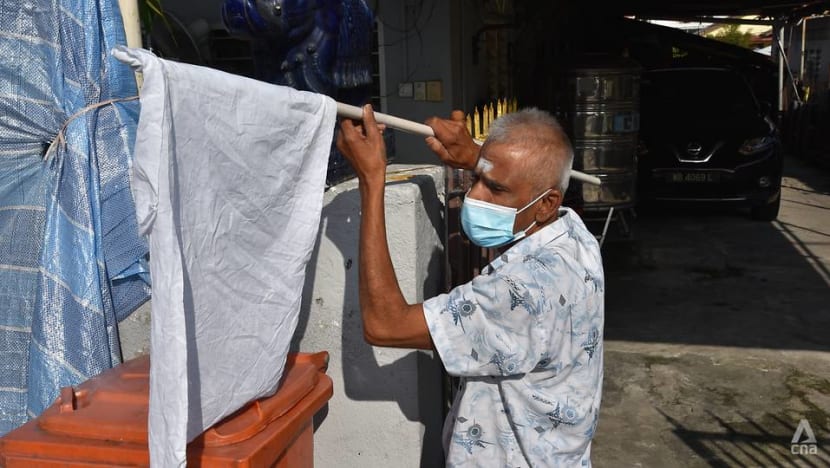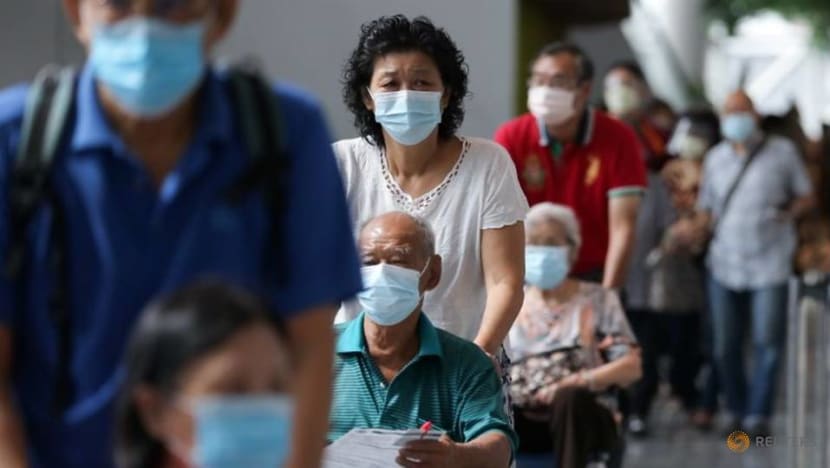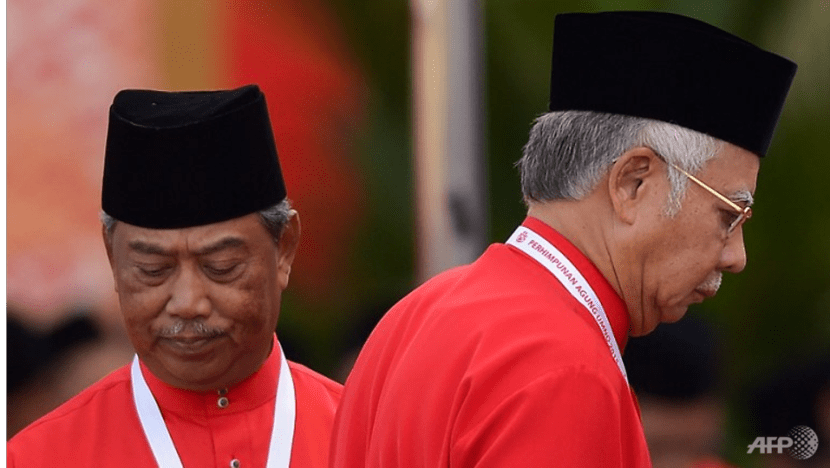Commentary: Malaysia’s white flag movement a symbol of hope and helping each other
The #BenderaPutih campaign underscores how Malaysians will go the extra mile to help each other out after widespread anger at the government says ISEAS-Yusof Ishak Institute's Serina Rahman.

Jambu Nathan Kanagasabai put up a white flag as a desperate call for help. It has since been taken down after he received aid from the village committee. (Photo: Vincent Tan)
JOHOR: After more than one and a half years under some form of COVID-19 lockdown or another, the average Malaysian is worn-out and weary.
In the past 16 months, more than 300,000 have lost their jobs in the retail sector alone, with 30 per cent of shops closed for good. The expectation is that 50 per cent of those who remain will also close if the lockdown is extended.
The tourism, hotel and food and beverage (F&B) sectors have also been battered. As of March 2021, 100 hotels had closed permanently.
READ: Desperate Malaysians fly white flags as a call for help to survive COVID-19 lockdown
More than 90 per cent of small, medium and informal entrepreneurs (SMEs), which account for the employment of 7.3 million people, are at risk of closing down.
More than 15,000 Malaysians who used to work in Singapore have been struggling to make ends meet.
A 2020 YouGov survey reported that 92 per cent of respondents were worried about losing their jobs. Reports of domestic violence and sexual abuse of children have soared and suicide rates have surged.
A recent police report cited 468 suicides between January and May 2021, when the country moved into MCO 3.0; this works out to an average of 3 suicides a day. This is a substantial increase when compared to a 2018 police report citing 1,696 deaths by suicide between 2014 and 2018 (0.93 suicides per day).
READ: Commentary: UMNO’s withdrawal of support shows Malaysia’s political establishment is losing the plot
Most alarmingly, of the reported suicides since MCO 1.0, 51 per cent are youths aged between 15 to 18 years old.
Online schooling over the COVID-19 period has resulted in many losing interest and access to education, especially boys from families at the bottom 40 per cent of income earners (B40). This added to existing secondary school dropout rates, which already hovered at 8 to 10 per cent, especially in rural and B40 areas.

This seems to correlate with reports that COVID-induced unemployment affects those between 15 to 24 the most. Youth unemployment, amongst those no longer in school, is more than 12 per cent.
READ: Commentary: Resurgent pandemic sparks unemployment crisis among Malaysia’s most vulnerable workers
WIDESPREAD ANGER AT GOVERNMENT
There is widespread unhappiness with how the Perikatan Nasional government has handled COVID-19. While multiple aid packages have been released by federal and state governments, many are still struggling to make ends meet.
Much of the aid did not reach those who really needed it. Assistance was one-off and difficult for the B40 community to access, and seemingly targeted at bailing out larger businesses.
These pressing circumstances spawned the White Flag Movement (#BenderaPutih). The initiative was started by a group of youth in Kuantan who lost a close friend to suicide as a result of severe financial difficulties.
They recognised the same struggles in people around them, and the initiative began, they said, as a comment and poster on Facebook. The movement took off like wildfire.
Their poster was adapted and made viral on social media. Malaysians keen to help encouraged others to do the same, and called for those who were suffering to overcome the social stigma and put up the silent appeals for aid.
Supermarkets such as 99Speedmart soon came on board, offering to send free food to anyone who needed it, while others offered deals on food bundles for those who wanted to buy and send aid.
READ: Commentary: Malaysia needs more than the ‘hammer’ of lockdowns to get COVID-19 under control
Food banks and offers of free food appeared across the country, with tables of cooked food or dry packaged goods set up at shop fronts or petrol stations for anyone who needed them. Others reached out to restock the tables and shelves as they swiftly emptied.
White flags seem to appear the most in lower middle-class neighbourhoods and suburbs. Stories soon emerged of families who resorted to putting them up after feeding their children snacks for days because they could not afford anything else.
In Sibu, Sarawak, there were news reports of ten houses in a few streets putting up white flags for aid. Neighbours and NGOs were swift to respond.
This is iconic of how the Malaysian people have been mobilising to help each other in the face of what is widely perceived to be inconsistent and illogical COVID-19 management by the government. Citizens were also shocked into action by widely circulating graphic images of people committing suicide.
POLITICAL REACTION
A few politicians were quick to jump on the bandwagon and claim it as their personal initiative. Others, such as Muhammad Sanusi Md Nor, the Chief Minister of Kedah, derided it as political propaganda.
Religious figures such as the Mufti of Penang and Parti Islam SeMalaysia (PAS) MP Nik Abduh Nik Aziz called on Malaysians not to “admit defeat” by raising a white flag. He called on them to raise their hands “in prayer to God” instead.

The Penang Mufti apologised a few days later. It is interesting to note, however, that the youth wings of the United Malays National Organisation, PAS and Pakatan Harapan are unanimous in their support of the movement.
While there have also been sporadic reports of abuse of public generosity and misunderstandings over where flags can be flown, the movement has gathered the support of most Malaysians.
READ: Commentary: Malaysia’s nationwide MCO - denial, doubts and divisions threaten effectiveness
While multiple aid packages have been released by federal and state governments, many are still struggling to make ends meet. Much of the aid did not reach those who really needed it.
This was an initiative started by youth, inspired by the struggles of their peers and championed by youth in power. Another youth group has taken it a step further by creating an online app, now renamed Sambal SOS, to consolidate and map information on those who need aid and the location of local food banks.
During the first of Malaysia’s Movement Control Orders (MCO), established NGOs and citizens groups consolidated to help those in need, but as the COVID-19 saga wore on, many of these groups were beginning to burn out and run out of funds.
This time round, the youth are showing the way. It has clearly reinvigorated the average person to step up and chip in, helping to make sure that no one in their neighbourhoods falls through the cracks.
While some have described the #BenderaPutih campaign as the epitome of surrender and desperation, it is a clear indication of how Malaysians will take action to help each other when in need rather than wait for government assistance. Malaysia’s youth, especially, are proving how they can pave the way to make a real difference.
Dr Serina Rahman is Visiting Fellow at the Malaysia Studies Programme and the Regional Economics Studies Programme at ISEAS – Yusof Ishak Institute. This commentary first appeared on the ISEAS-Yusof Ishak Institute’s blog, the Fulcrum.












